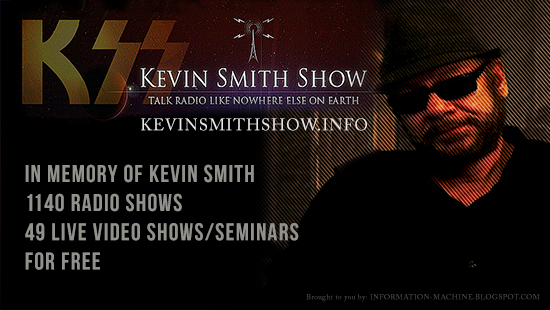Ancient Technologies | FORBIDDEN ZONES on the Giza Plateau (Ep. 2) | July 30, 2025
Description:
Locked and blocked subterranean entrances, deep vertical shafts, angry guards, industrial-scale acidic erosion and a lucky find from inside an ancient iron vein! 4K adventure through the anomalies of Egypt with Cairo resident & researcher Geoffrey Drumm from 'The Land of Chem' YouTube Channel.
Tucker Carlson | John Mearsheimer | The Palestinian Genocide and How the West Has Been Deceived Into Supporting It | July 30, 2025
Chapters:
(5:13) The West’s Ridiculous Russophobia
(15:47) Why Do We Still Have NATO?
(25:29) The Growing Threat of China and How the US Empowered Them
(39:30) The US Puppet Called Zelensky
(41:48) Donald Trump’s Biggest Challenges With Ending the War
(48:14) Why the US Foreign Policy Establishment Is So Hawkish on Middle Eastern Wars
(51:10) Why the US Puts Israel’s Interests First
(56:13) The Palestinian Genocide
(1:05:32) The Zionist Mission for Greater Israel
(1:11:24) The Power of the Israel Lobby
(1:20:53) The Attempts to Shut Down Criticism of Israel
(1:32:58) Why Are Christians in the West Supporting Israel’s Killing of Christians in the Middle East?
(1:38:10) The Growing Opposition Towards Israel Among Young People
(1:42:45) Why Don’t We Know the Death Toll of Any of These Wars?
(1:53:27) The Authoritarianism That Has Infected Israel
(1:55:25) Will Israel Rebuild the Third Temple?
(1:58:22) What Is Being Hidden in the 9/11, Epstein, and JFK Files?
(2:01:07) The Future of the Global Stage
(2:08:26) Will There Be a US/China War Over Taiwan?
Mohammad Marandi | Israel’s War, U.S. Lies & Iran’s Stand on the IAEA | July 30, 2025
Description:
In this powerful interview, Mohammad Marandi exposes the brutal reality behind Israel’s ongoing war on Gaza and the U.S. role in enabling it. We unpack whether the Gaza food aid program is a charade, why no ceasefire is likely soon, and how the West is complicit in the continued suffering.
Iran’s decision to invite the IAEA to Tehran — what it really means.
The geopolitical tensions with Azerbaijan and why Iran sees it as an anti-Iran front.
How Western narratives, diplomacy, and international institutions are being weaponized against the region.
This is a must-watch for anyone trying to understand the real balance of power in West Asia — beyond the headlines.
Col. Larry Wilkerson | How We Encircled Russia and Made Europe a Vassal – Divide & Rule | July 30, 2025
Description:
Lawrence Wilkerson is a retired Colonel in the US Army and the former Chief of Staff to Colin Powell. Colonel Wilkerson outlines how the encirclement of Russia, China and Iran has laid the foundation for numerous great power wars. Yet, the narratives omit the encirclements, and the assumption that America's adversaries are acting aggressively and unprovoked
Andrei Martyanov | Nine and a Half Days | July 30, 2025
Description:
Or why Trump thinks it is a "shame" that Russians do not care.
Dr. Dan Attrell | Lost Ancient Wisdom, Magic, Hermeticism and Terence McKenna | July 30, 2025
Description:
Dr. Dan Attrell is a classicist, translator of magical texts like the Picatrix, and the creator of The Modern Hermeticist. We riff on the surprising connections between the esoteric, Platonism, and Hermeticism, and Terence McKenna.
Why do ancient metaphysics — ideas like the One, the daimon, and the chain of being — still resonate in the age of UFOs, and simulation theory? What does Terence McKenna have to do with this? Does be belong in the lineage of Platonists?
We also dive into: The hidden structure of reality, visionary entity encounters, how ancient esoteric philosophy maps onto modern mystical experience, why symbols, language, and consciousness are gateways to higher worlds.
If you're curious about the intersections between ancient wisdom, consciousness, psychedelics, and the nature of reality, this mind meld is for you.
---
Introduction and Context
The discussion explores the intersections of ancient esoteric traditions (Hermeticism, Platonism) with modern consciousness exploration, particularly through Terence McKenna’s psychedelic philosophy. It posits that reality has hidden layers beyond sensory perception, a notion shared by ancient philosophies and modern seekers. McKenna viewed Neoplatonism as a precursor to psychedelic insights, describing an “ascending hierarchy of rarified states” akin to shamanic cosmology.
Core Themes and Discussions
1. Reality and Deception
- Dr. Attrell rejects the Gnostic view of a “cosmic demiurgical prison.” He sees the material world as an echo of higher realities, not false but a lower extension of the soul into matter, like an elastic band that can “snap back” to the divine.
- Deception stems from human corruption, not cosmic design. The world reflects higher realms populated by intelligences like gods, angels, and demons.
2. Hermeticism and Platonism
- Hermeticism: A life-affirming philosophy encouraging piety, gratitude, and creative acts (art, science, medicine) to draw divine energies into the material world. The Asclepius emphasizes harmonious coexistence with the divine.
- Platonism: Reality is a shadow of a higher, noetic world of forms. The soul processes from and reverts to the “One,” mirroring McKenna’s ideas about time and novelty.
- Theurgy and Initiation: Theurgy involves rituals to draw divine energies (e.g., animating statues). Teletai (initiations) perfect the soul, as seen in mystery cults like the Eleusinian Mysteries.
3. The Picatrix and Perfect Nature
- The Picatrix, a medieval grimoire, details astrological and magical practices to contact planetary intelligences. The “Perfect Nature” ritual, involving a cave and lanterns, connects individuals with a spirit akin to a Holy Guardian Angel, guiding them to their cosmic purpose.
- This aligns with Hermetic and Platonic ideas of aligning with divine will through practical, life-affirming means.
4. Terence McKenna as a Postmodern Platonist
- McKenna’s Philosophy: Attrell describes McKenna as a “weird” or “postmodern” Platonist, adapting Platonic metaphysics to a post-WWII context shaped by environmental concerns and psychedelics.
- Platonic Elements:
- Primacy of the Ineffable: McKenna’s focus on the ineffable aligns with Platonic apophatic mysticism. Psychedelic experiences (e.g., DMT “machine elves”) reveal pure meaning beyond language.
- Time as Eternity’s Image: McKenna’s Timewave Zero theory, where history converges toward a “transcendental object,” echoes Plato’s Timaeus.
- Critique of Materialism: Like Plato’s Allegory of the Cave, McKenna rejects materialist reality as a shadow of a truer, noetic world.
- Anthropocentrism: McKenna divinizes the human mind as the universe’s most complex entity, akin to Hermetic views of humanity as a microcosm.
- Eros: McKenna’s “luv” as a cosmic binding force resembles Plato’s Eros in the Symposium.
- Divergences: McKenna’s feminism, environmentalism, and anti-hierarchical stance contrast with Plato’s patriarchal views. His “archaic revival” draws on pre-Indo-European goddess cultures.
- Later Shift: After a 1991 psychedelic crisis, McKenna explored Jungian alchemy and Renaissance Hermeticism (via Frances Yates), seeing figures like Giordano Bruno as accessing psychedelic-like states without drugs.
5. Eleusinian Mysteries and Psychedelics
- The Eleusinian Mysteries involved a kykeon drink and visionary experiences in a sacred chamber (telesterion). Attrell discusses the hypothesis that the kykeon contained psychoactives like ergot or opium, supported by circumstantial evidence (e.g., poppy imagery).
- Parallels with modern psychedelic experiences suggest a connection. McKenna saw the Mysteries as a precursor to his “archaic revival.”
6. The Sacred and the Numinous
- The sacred is set apart from everyday reality. Ancient and modern seekers aim to encounter this numinous realm through rituals, psychedelics, or contemplation, often conveying it through poetry or initiatory practices.
7. Contemporary Relevance
- Platonism and Hermeticism address the modern “meaning crisis” by offering frameworks for mystical states and coherence in a fragmented world.
- Mainstream religions, steeped in Platonic ideas, provide one path, but McKenna’s blend of ancient wisdom and modern contexts resonates with alternative spiritual seekers.
Key Takeaways
- Hermeticism and Platonism promote a life-affirming view of reality as a divine echo, encouraging creative alignment with cosmic purpose.
- McKenna’s postmodern Platonism adapts ancient metaphysics to modern concerns, emphasizing the ineffable, time, and human consciousness.
- The Eleusinian Mysteries and psychedelics share experiential parallels, suggesting a continuity of mystical exploration.
- These traditions offer tools to navigate the modern search for meaning and the sacred.
Conclusion
The conversation with Dr. Attrell bridges ancient esoteric traditions with modern consciousness exploration, highlighting McKenna’s role as a postmodern Platonist. It underscores the enduring relevance of Hermeticism and Platonism in addressing mystical experiences and the quest for meaning in a disenchanted world. Attrell’s expertise makes this a rich exploration of reality’s “hidden architecture.”

































